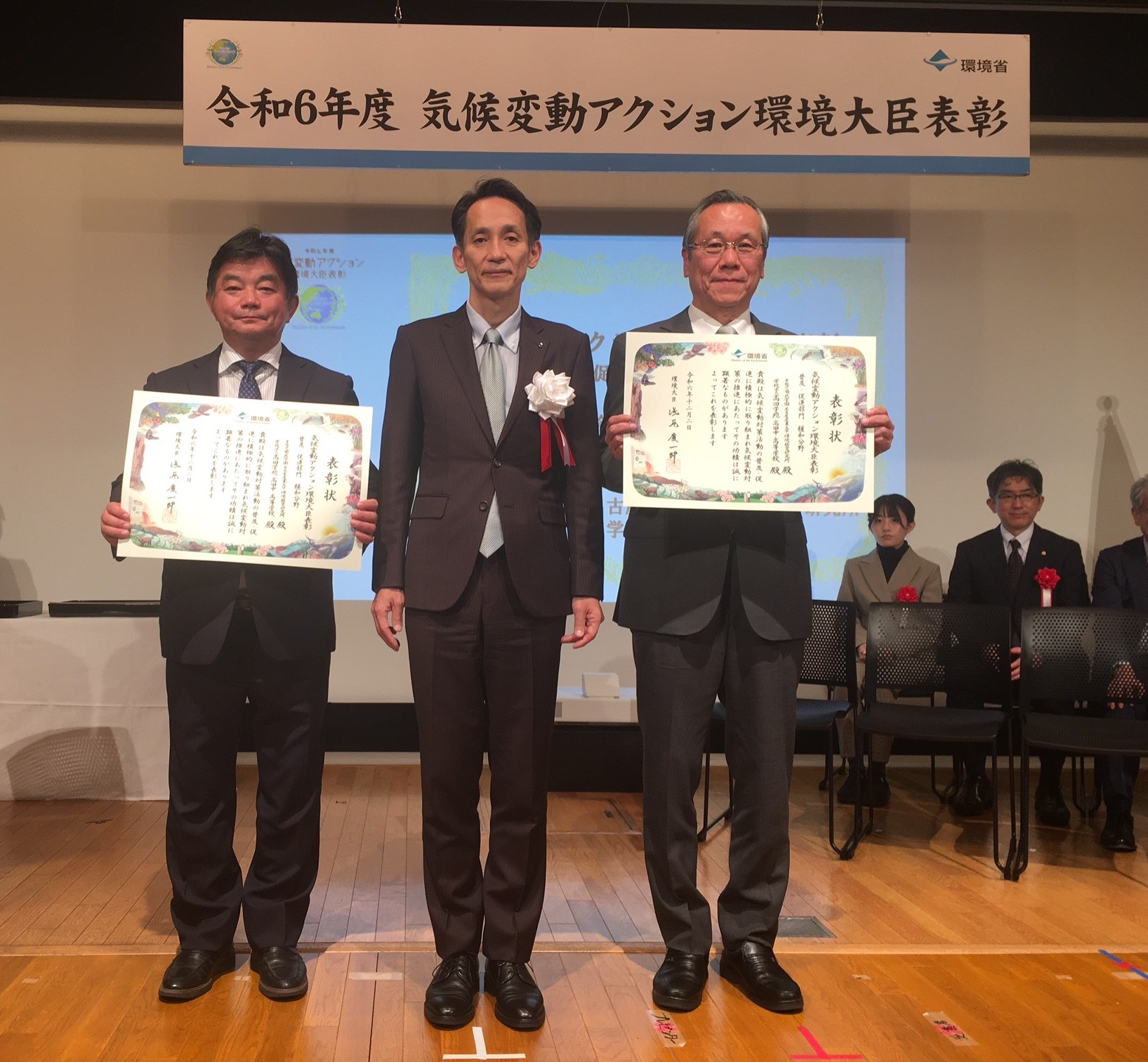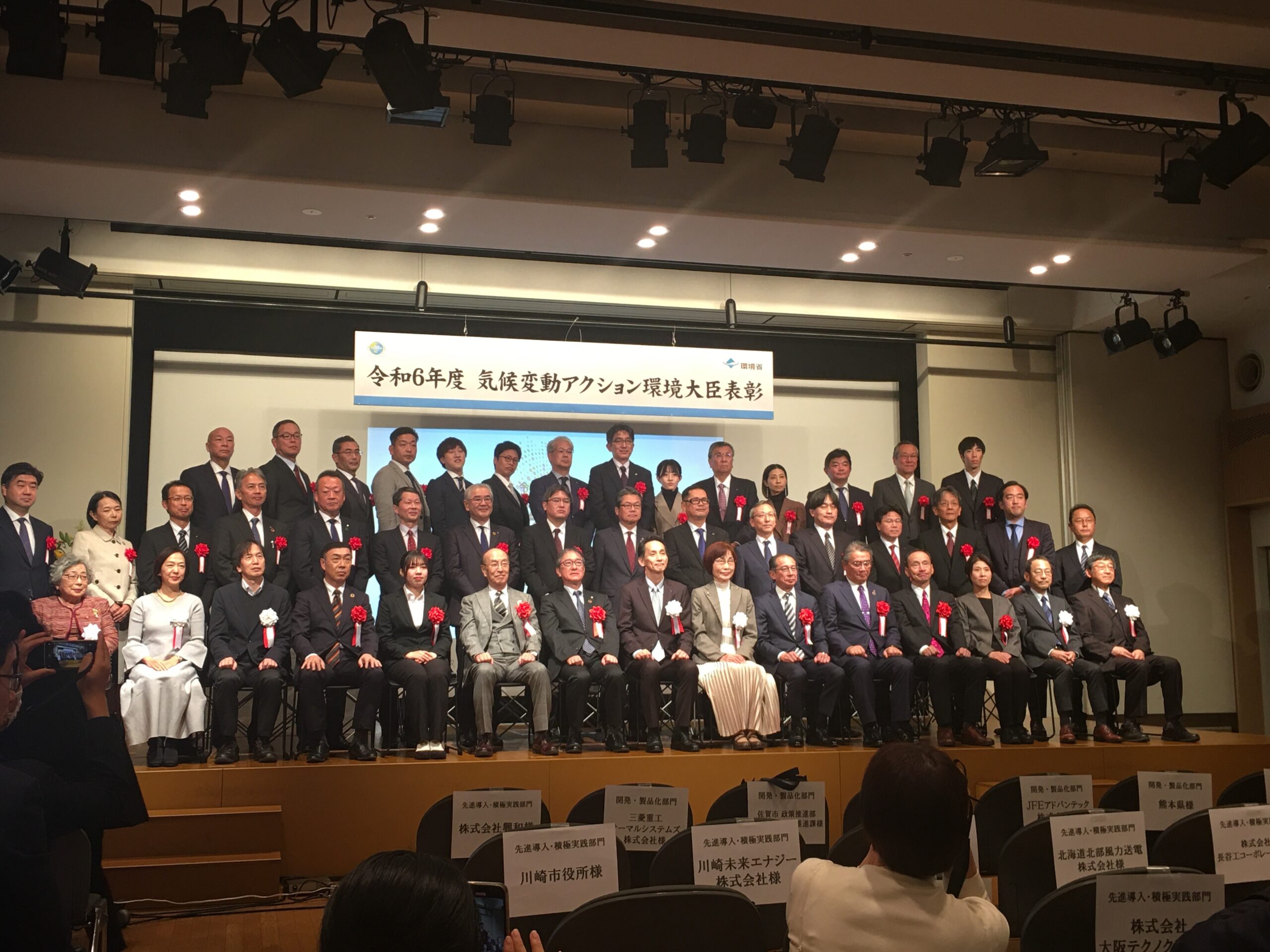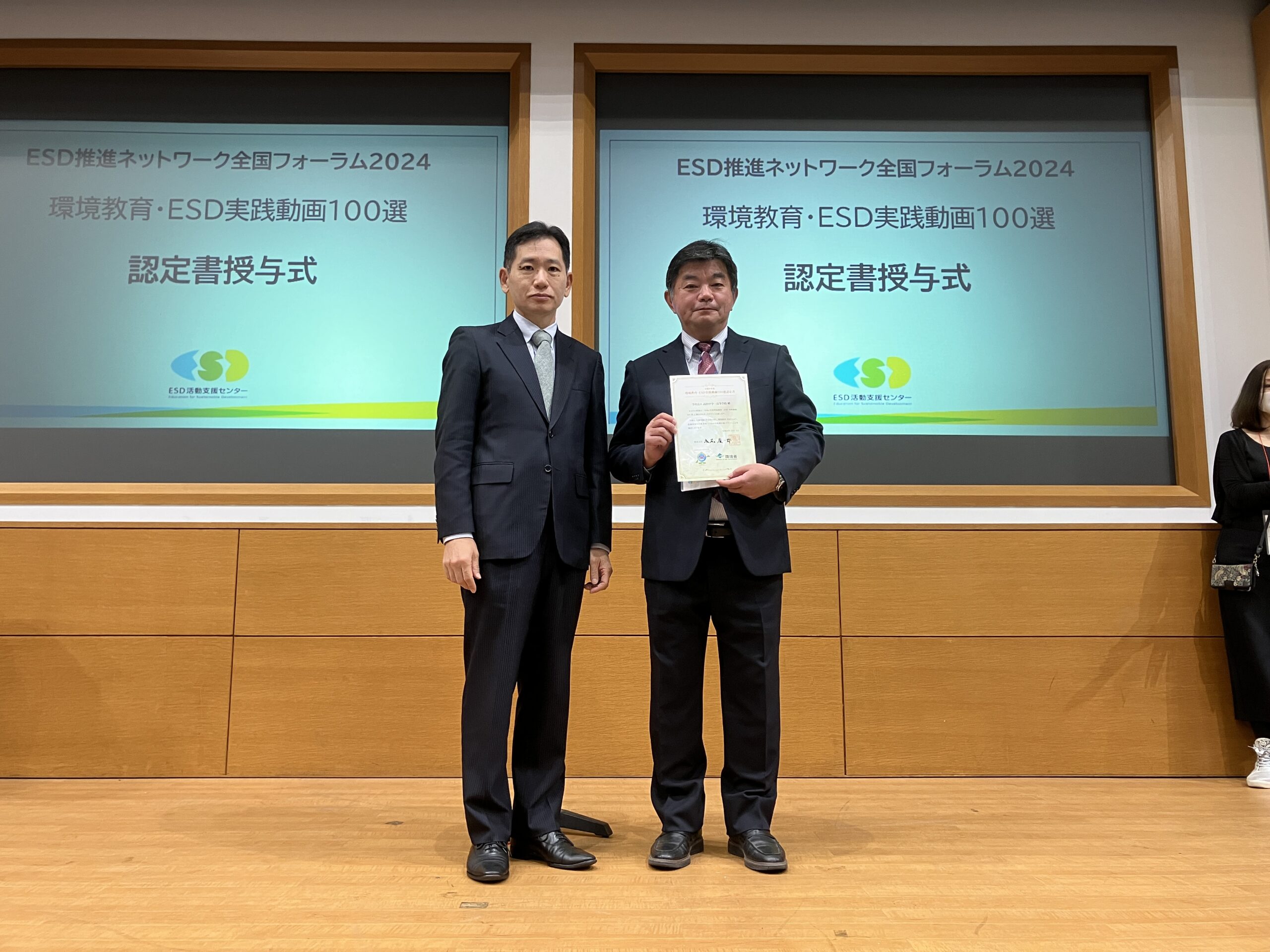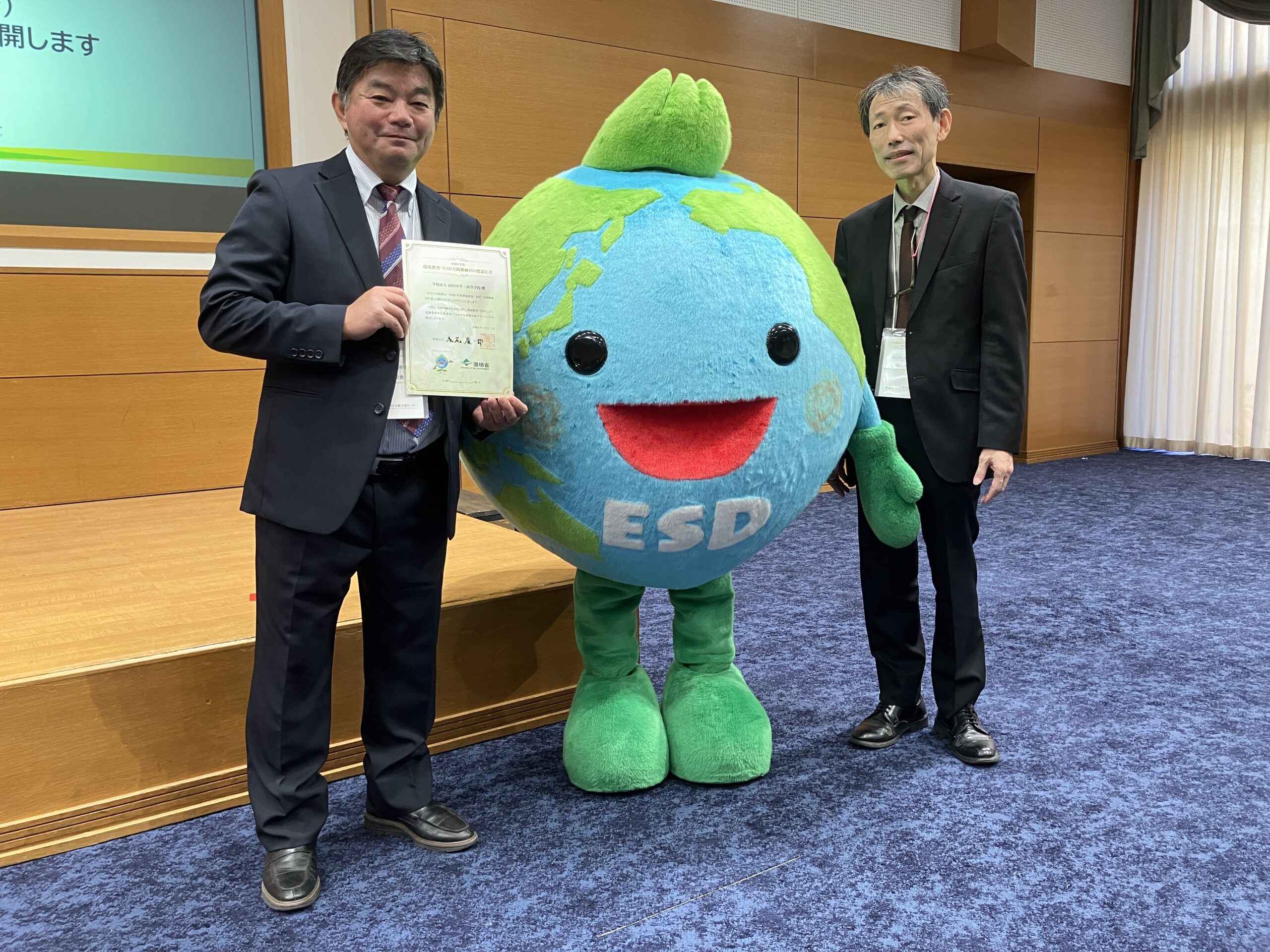Nagoya Sangyo University has been working with Takada Junior & Senior High School in Mie Prefecture to foster environmental literacy among students through the study of afforestation with high CO2 absorption capacity. Since 2021, this initiative has been expanded to elementary, junior high and senior high schools in Vietnam, Nepal, Taiwan and Indonesia as an EDU-Port Japan supported project and research project.
In recognition of their efforts, Nagoya Sangyo University and Takada Junior & Senior High School received the Minister of the Environment Award for Climate Action for 2024 for their “systematic support and overseas expansion of afforestation studies in elementary, junior high and senior high schools.” Over a seven-year period from 2017, they have supported experiential and inquiry-based environmental learning, based on CO2 concentration surveys in local areas, at a total of 110 schools (including 74 overseas) in Japan and the four countries mentioned above, with the participation of over 2,300 students, including 1,600 from overseas, winning high praise.
In addition, the Zero Carbon School Initiative video created by Takada Junior & Senior High School has been selected as one of the 100 Best Videos for Environmental Education & ESD Practice in 2024. The video showcases inquiry-based activities utilizing data from CO2 concentration measurements around the school and plant photosynthesis studies, along with the school’s upcoming activities toward achieving carbon neutrality on the school campus. The judges praised the video, stating, “This video is filled with a whole variety of ideas for achieving carbon neutrality at the school. It will serve as an excellent reference for schools that are promoting climate change education.”
(You can watch the video here:https://www.youtube.com/watch?v=ABnB_6Nn4uA)
The initiatives by Nagoya Sangyo University and Takada Junior & Senior High School are entering a new phase internationally.
In Nepal, following the signing of a Memorandum of Understanding (MOU) on mutual cooperation in environmental education with their local counterpart, Pashchimanchal Secondary School, in December 2023, Nagoya Sangyo University and Takada Junior & Senior High School have also begun supporting Zero Carbon School activities at Shree Shankarnagar Durgadatta Secondary School. They have been approached by the mayor of Tilottama, where the school is located, with a proposal for an MOU, which is scheduled to be signed in December 2024. With the signing of the MOU, the mayor has expressed his commitment to providing the necessary support for promoting the Zero Carbon School initiative.
Additionally, in Taiwan, the achievements of Kaohsiung Girls’ High School, a model school for the Zero Carbon School initiative, received the highest four-star award at the international symposium on Global Learning and Observations to Benefit the Environment (GLOBE), a program sponsored by NASA and other U.S. organizations. The school’s activities have evolved into a collaborative, integrated initiative with the Tree-Loving Education (Aiju-Kyoiku) program promoted by the Ministry of Education, the highest supervisory body for Taiwan’s education. In February 2025, with the support of the Ministry of Education, a forum for school stakeholders will be held in Kaohsiung City toward further promoting the Zero Carbon School initiative.
As of the end of November 2024, Zero Carbon School activities are being implemented in 12 schools in Japan, Taiwan, Indonesia and Nepal. Based on the results of the overseas expansion efforts through the EDU-Port Japan projects, Nagoya Sangyo University and Takada Junior & Senior High School aim to expand the Zero Carbon School initiative as an internationally viable climate change education model that can be implemented in any school in any country or region, while fostering the sustainability of the activities.











